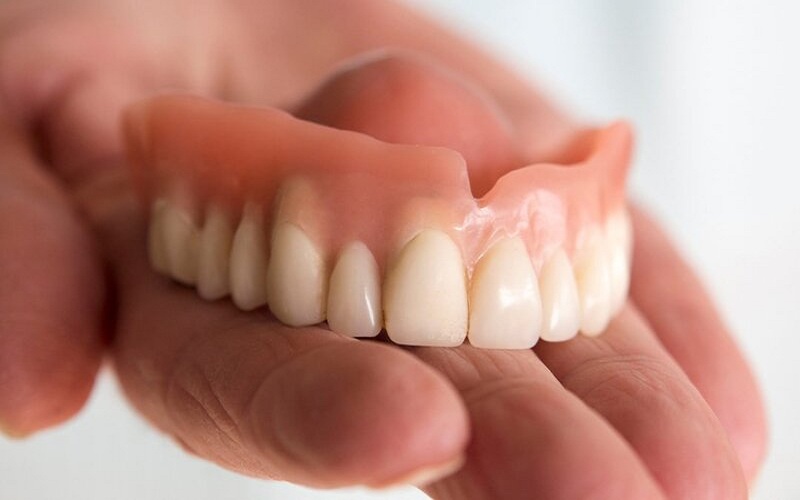Key Takeaways:
- Snap-on dentures significantly improve functionality and stability compared to traditional dentures.
- Snap-on dentures enhance confidence and self-esteem by providing a natural-looking smile.
- Snap-on dentures supported by dental implants help preserve the jawbone structure and prevent bone loss.
- There are different types of snap-on dentures, including traditional, mini implant-supported, and All-on-4 dentures.
- The snap-on denture procedure involves consultation, denture preparation and fitting, implant placement, and adjustment.
- Proper care and maintenance, including regular cleaning, hygiene practices, and dental check-ups, are necessary for the longevity of snap-on dentures.
The Benefits of Snap-On Dentures
Before understanding the benefits, what are snap-on dentures? Snap-on dentures, also known as implant-supported dentures or overdentures, are a popular option for individuals who have lost multiple teeth or are completely edentulous (toothless). These dentures are removable prosthetic devices that snap onto dental implants placed in the jawbone. They offer several benefits compared to traditional removable dentures. Let’s explore these benefits in detail:
Improving Functionality
One of the major advantages of snap-on dentures is that they significantly improve functionality compared to traditional dentures. Traditional dentures may often slip or shift, making it challenging to speak clearly or eat certain types of foods. On the other hand, snap-on dentures are securely attached to dental implants, providing a stable foundation. This stability allows for improved chewing efficiency and better speech, enhancing the overall quality of life for denture wearers.
Enhancing Confidence and Self-Esteem
Having a healthy and attractive smile plays a crucial role in boosting confidence and self-esteem. However, individuals with missing teeth may feel self-conscious and avoid social situations. Snap-on dentures can be customized to match the natural appearance of your teeth, providing a beautiful smile that looks and feels natural. The secure fit of these dentures also eliminates the fear of them falling out or shifting, giving denture wearers the confidence to speak, smile, and laugh without any inhibitions.
Reducing Bone Loss
When natural teeth are lost, the jawbone can gradually deteriorate due to the lack of stimulation. This bone loss can lead to sagging facial features and a more aged appearance. Traditional dentures rest on the gums, providing minimal stimulation to the underlying bone. In contrast, snap-on dentures are supported by dental implants, which mimic the function of natural tooth roots. The implants stimulate the jawbone, helping to preserve its structure and prevent bone loss. This not only maintains facial aesthetics but also ensures a more stable and long-lasting solution for tooth replacement.
The Different Types of Snap-On Dentures
There are several types of snap-on dentures available to suit different needs and requirements. Let’s take a closer look at the most common types:
Traditional Snap-On Dentures
Traditional snap-on dentures are attached to dental implants using a ball-and-socket or bar attachment system. The implants are surgically placed in the jawbone, and the dentures are designed to snap onto these attachments, providing a secure fit. This type of snap-on denture offers stability and improved functionality compared to traditional removable dentures. However, they may require adjustments over time to maintain a proper fit.
Mini Implant-Supported Snap-On Dentures
Mini implant-supported snap-on dentures have smaller-sized dental implants compared to conventional implants. These smaller implants are ideal for individuals who have insufficient bone density or are not suitable candidates for traditional implant placement. The dentures are designed to snap onto the mini implants, providing a reliable and comfortable solution for tooth replacement. Mini implant-supported snap-on dentures can often be placed in a single visit, reducing the overall treatment time.
All-on-4 Snap-On Dentures
All-on-4 snap-on dentures utilize four dental implants strategically placed in the jawbone. This technique offers a stable foundation for full arch dentures. The implants are strategically angled to maximize the existing bone structure, eliminating the need for bone grafting in many cases. All-on-4 snap-on dentures provide a cost-effective and efficient solution for individuals with significant tooth loss or those who have been wearing traditional dentures for an extended period.
The Snap-On Denture Procedure
The process of getting snap-on dentures typically involves several steps. Let’s break down the procedure to understand what to expect:
Consultation and Treatment Planning
The first step is to consult with a dental professional experienced in implant dentistry. During the consultation, the dentist will evaluate your oral health, discuss your desired outcomes, and determine if snap-on dentures are the right option for you. They may take X-rays, impressions, or 3D scans of your mouth to gather essential information for treatment planning.
Based on the evaluation, the dentist will create a personalized treatment plan that considers factors such as the number of implants required, the type of dentures, and any necessary preparatory procedures like tooth extractions or bone grafting. This planning phase ensures that the treatment aligns with your specific needs and goals.
Denture Preparation and Fitting
Once the treatment plan is finalized, the next step is to prepare the dentures. The dental team will take detailed impressions of your mouth to create custom-made dentures that fit your gums and replicate the appearance of natural teeth. These impressions are sent to a dental laboratory, where skilled technicians fabricate the dentures to the dentist’s specifications.
When the dentures are ready, you will return to the dental office for a fitting. The dentist will ensure that the dentures fit properly and make any necessary adjustments to achieve optimal comfort and aesthetics. This fitting process may involve trials of the dentures to evaluate their fit and function.
Placement and Adjustment
Once the dentures are adjusted and meet your satisfaction, the dental implants will be placed. The dentist will surgically insert the implants into the jawbone, following proper sterilization and anesthesia protocols. The number and placement of the implants will depend on the type of snap-on dentures being used.
After the implant placement, a healing period is necessary to allow the implants to fuse with the surrounding bone. This process, known as osseointegration, typically takes several months. During this period, temporary dentures may be provided to maintain aesthetics and functionality.
Once the healing is complete, the dentist will attach the permanent snap-on dentures to the implants. They will ensure a secure fit and make any necessary adjustments for proper alignment and comfort. You will be provided with instructions on how to care for your dentures and oral hygiene practices to follow.
Caring for Snap-On Dentures
Proper care and maintenance of snap-on dentures are essential to ensure their longevity and optimal function. Here are some tips for caring for your dentures:
Cleaning and Maintenance
Just like natural teeth, snap-on dentures require regular cleaning to maintain oral health and prevent the buildup of plaque and bacteria. Remove the dentures and rinse them thoroughly under running water after meals to remove any food particles. Use a soft-bristle toothbrush and non-abrasive denture cleaner to brush the dentures gently. Avoid using toothpaste or harsh cleaning agents as they can damage the denture material. Remember to clean the attachments and dental implants as instructed by your dentist.
Tips for a Comfortable Fit
To ensure a comfortable fit and prevent irritation or sore spots, it is important to maintain proper hygiene and follow a few additional tips. Clean your gums and any remaining natural teeth using a soft toothbrush or gauze. Avoid wearing the dentures overnight to allow your mouth to rest and recover. If your dentures feel loose or cause discomfort, contact your dentist for adjustments.
Regular Check-ups and Professional Cleanings
Regular dental check-ups are crucial for monitoring the health of your mouth, gums, and dentures. Your dentist will evaluate the fit and function of your snap-on dentures during these visits and make any necessary adjustments or repairs. Additionally, professional cleanings by your dental hygienist will help remove plaque and tartar that may accumulate on the dentures or the implant attachments.
Remember to follow any specific care instructions provided by your dentist, as they may vary based on the type of dentures and individual needs.
With proper care and maintenance, snap-on dentures can provide a long-lasting and comfortable solution for individuals with missing teeth. If you are considering snap-on dentures, consult with a qualified dental professional who can guide you through the treatment process and help restore your smile and confidence.
FAQ
Question: What are snap-on dentures?
Answer: Snap-on dentures are removable prosthetic devices that snap onto dental implants placed in the jawbone. They provide improved functionality and stability compared to traditional dentures.
Question: How do snap-on dentures enhance confidence and self-esteem?
Answer: Snap-on dentures can be customized to match the natural appearance of your teeth, providing a beautiful smile that looks and feels natural. The secure fit of these dentures also eliminates the fear of them falling out or shifting, giving denture wearers the confidence to speak, smile, and laugh without any inhibitions.
Question: Do snap-on dentures help reduce bone loss?
Answer: Yes, snap-on dentures supported by dental implants help stimulate the jawbone, preserving its structure and preventing bone loss. This ensures a more stable and long-lasting solution for tooth replacement.
Question: What are the different types of snap-on dentures?
Answer: There are traditional snap-on dentures, mini implant-supported snap-on dentures, and All-on-4 snap-on dentures.
Question: How is the snap-on denture procedure carried out?
Answer: The procedure involves consultation, denture preparation and fitting, implant placement, and adjustment. Temporary dentures may be provided during the healing period before attaching the permanent dentures.
Question: How should snap-on dentures be cared for?
Answer: Snap-on dentures require regular cleaning using a soft-bristle toothbrush and non-abrasive denture cleaner. They should be removed and rinsed after meals. Regular dental check-ups and professional cleanings are also important.
Question: What are some tips for a comfortable fit?
Answer: To ensure a comfortable fit and prevent irritation or sore spots, maintain proper hygiene, clean your gums and any remaining natural teeth, and avoid wearing the dentures overnight.
Question: How long can snap-on dentures last with proper care?
Answer: With proper care and maintenance, snap-on dentures can provide a long-lasting and comfortable solution for individuals with missing teeth. Regular dental check-ups and professional cleanings are important for monitoring and maintaining the dentures.





